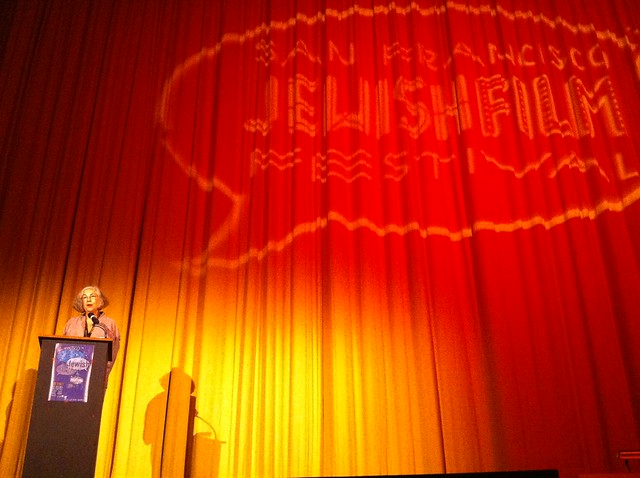Guest post by Menachem Wecker
During the Q&A period of a Dec. 1 event at the National Press Club titled "Why journalists must understand religion," I asked Sally Quinn, founder and moderator of the Washington Post's On Faith, if it was an advantage for reporters to approach the religion beat with insider knowledge of the faiths they are covering.

On the other hand, I've written for Catholic, Arab American and Mormon publications, and invariably, I learn the most from writing for those audiences, because I'm forced to do more research and to double- and triple-check my work.
Ms. Quinn responded that experience clearly helps a reporter understand the story, but it is not a prerequisite to good reporting.
I was replaying the Press Club event in my head when my editor at the Houston Chronicle asked me to write a news story for the paper on Christmas. It sounds like the beginning of an off-color joke: a kid named Menachem starts writing a story on Christmas art...
I have to say, though, that in the process of researching the story -- which ran Dec. 23 as "Fine Art displays haven't forsaken the Nativity" -- I definitely found myself enjoying the process all the more so because I knew I was treading holy water.
Diane Apostolos-Cappadona, an adjunct professor of religious art and cultural history at Georgetown University, sent me a handful of articles and chapters she’d written on the subject, and I happily and hungrily devoured them word for word -- several times each.
I also got a kick out of emailing back and forth with art blogger Tyler Green, who had created an online Adventist and Chanukah calendar on the micro-blogging platform Tumblr.
Some might say that chutzpah draws me to non-Jewish stories, but I prefer to see it as an expression of a different Jewish value: sakranut, or curiosity -- the same sentiment that motivated the famous monkey Curious George, who according to the latest wisdom, might even have been Jewish himself.
What would Curious George have had to say about Christmas art? Probably not a whole lot, but I can just see him getting caught up in some mischief as he tried to track Santa (b. 1881) down to personally deliver his wish list -- sure to be a whole lot of bananas.



